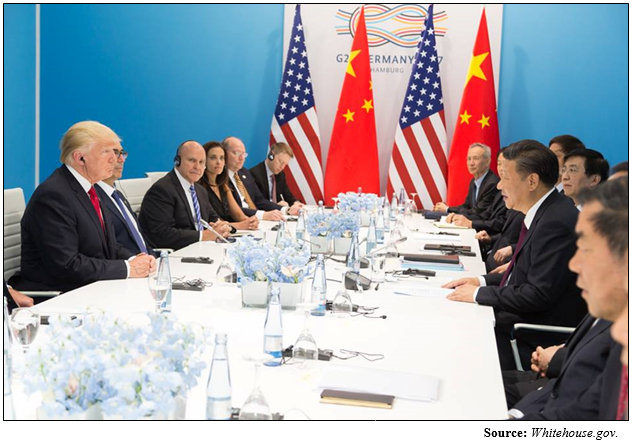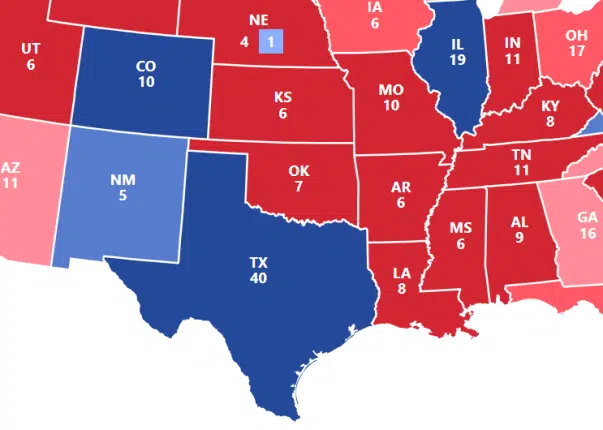Is North Korea independent? Or is it a satellite of China? During the Korean War, when U.S. forces pushed toward the Sino-Korean border in the summer of 1950, China immediately intervened, pushing the U.S. back to the 38th parallel. From 1951 to 1953, the war was a stalemate.
Since then, although the war never technically ended, North and South Korea have stood at opposite ends of an ideological struggle, the Cold War, which ended in the last century. Now the demilitarized zone stands as a monument to those past conflicts. In the time since then, North Korea has vigorously pursued nuclear weapons in a bid to claim dominance on the peninsula and to permanently stand up its regime as a world power.
How much has China invested in that nuclear endeavor? How does it play into Beijing’s economic plans to dominate global trade? Is North Korea China’s nuclear deterrent against trade sanctions?
We may be about to find out, as President Donald Trump simultaneously pursues his June 12 agreement with North Korean leader Kim Jong Un to denuclearize the Korean peninsula and considers up to $200 billion of tariffs against China as it has dramatically expanded its global market share of manufacturing.
If North Korea is indeed a satellite of China’s, then Beijing would actually be the proper pressure point to achieve denuclearization — by fighting the trade war.
We might not say it. China’s trade subsidies on currency and other state-run enterprises plus dumping steel on global markets all on their own render it worthy of the tariffs.
Sanctions on North Korea, although necessary in their own right until verified denuclearization is pursued and achieved, do not necessarily hurt the persons making the actual decisions to pursue nuclear weapons, if Kim is merely doing Beijing’s bidding.
It may also be the case that in order to persuade China — and Russia, for that matter — to cooperate in administering sanctions against Pyongyang requires consequences for non-cooperation. President Trump recently had to call off further talks with Kim by Secretary of State Mike Pompeo amid signals of non-cooperation from all three.
China and Russia have reportedly helped North Korea to get around the sanctions, and the International Atomic Energy Agency has reported North Korea is still developing its weapons. In addition, North Korea’s top diplomat, Kim Yong Chol, sent a letter to Pompeo expressing displeasure because the U.S. had not signed a peace treaty to formally end the war. These headwinds are rather par for the course, and to be expected as the U.S. attempts to achieve its policy.
Whether China is personally building the nuclear weapons for North Korea, the sanctions cannot and will not be fully effective without their cooperation. Therefore, the $200 billion of tariffs should absolutely be the table. U.S. economic policy preferences among investors do not trump U.S. national security interests. Trade sanctions with China should be cast in the lens of economic policy, but they may also be necessary to persuade China that cooperation in denuclearization on the Korean Peninsula, and working toward a trade accord with the U.S., is preferable to fighting a trade war with Trump that it cannot win.
China has far more to lose in a trade confrontation with the U.S. In 2017, it shipped $505 billion of goods to the U.S., compared with $130 billion of U.S. exports to China, according to U.S. Census data. As a result, the goods trade deficit with China hit an all-time high of $375 billion in 2017.
President Trump should begin illustrating this while simultaneously leveraging the possibility of hundreds of billions of dollars of tariffs — perhaps we should make $400 billion? — to bring China to the table. Beijing has no right to trade goods to the U.S. The U.S. government allows it but it is by no means a necessity. So, levy the tariffs. No ultimatum. Just do it. They will hit Beijing where it hurts — in their pocket books.
And then see how North Korea reacts. If they start firing missiles again, it proves that they are China’s puppet. If they move quicker towards denuclearization, it could mean that, too, or it could mean China committed to the sanctions more vigorously. If they do nothing, perhaps that might be an indication that Kim is his own man — or simply be a ploy — and then talks can be resumed on a bilateral basis.
Again, China richly deserves the tariffs that Trump is considering levying after years of trade cheating. They should be enacted in their own right, but it is time that U.S. policy makers observe the real connective tissue between the trade issues with China and its North Korean nuclear deterrent.
The President has to consider the very real possibility that North Korea represents nuclear blackmail in China’s bid for global dominance in trade — and act accordingly. It may be that there can be no peace on the Korean peninsula if China truly rules north of the 38th parallel. It’s time to call China’s bluff.
Robert Romano is the Vice President of Public Policy at Americans for Limited Government.







